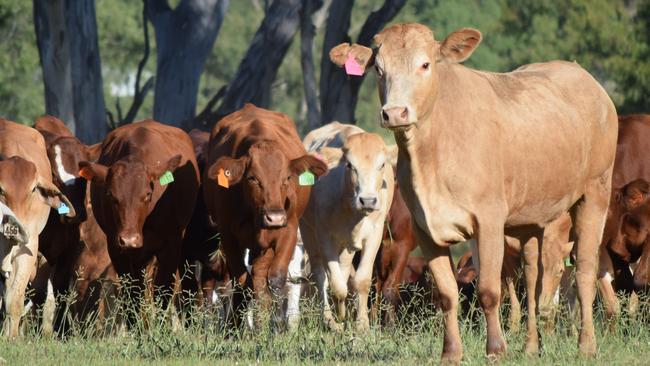Queensland’s Wide Bay region on high alert after outbreak of Q fever cases
A Queensland region has been placed on high alert after an outbreak of a rare bacterial disease dubbed Q fever.
Bundaberg
Don't miss out on the headlines from Bundaberg. Followed categories will be added to My News.
Queensland Health is urging residents of the Wide Bay region, which includes Noosa, Maryborough and Gympie, to get vaccinated against a rare bacterial disease dubbed Q fever.
Authorities have confirmed 11 cases of the mysterious disease have been detected in 2022 – almost double the average for the same period over the past five years.
High risk workplaces have been urged to get staff vaccinated while those working with animals have been advised to wear P2 masks
Symptoms of Q fever include sudden onset of fever and chills, severe sweats, severe headache, especially behind the eyes, muscle pain, weakness and tiredness and significant weight loss.
Wide Health Health and Hospital Service spokesman Chris McLoughlin said the disease was caused by bacteria Coxiella burnetii, which could be carried by a number of animals including, cattle, sheep, goats and kangaroos.
“People become infected by breathing in droplets of the bacteria or dust contaminated by birth fluids, faeces, or urine from infected animals,” he said in a statement.
Person to person transmission is rare.

Increases in recent cases may come from more people living closer to wildlife as residential areas spread farther and farther away from city centres.
Public health physician Dr Josette Chor said wild and domestic animals could carry the Q fever disease.
“It can also persist in the general environment in dust and soil, which can lead to infection and disease,” she said.
“Dry and windy conditions can increase the risk of transmission to humans.”
Wide Bay residents who spend time with animals and their droppings are encouraged to wear P2 masks, especially when stirring the air with activities such as mowing.
“It’s also important to always wash your hands after coming into contact with all animals or their faeces, especially before eating and drinking,” Dr Chor said.

Meat workers and abattoir workers have also been warned to take extra care, and to get the vaccine.
“There is an effective vaccine available to protect people against Q fever,” Dr Chor said.
“Vaccination is recommended for all people who are working in, or intend to work in, a high-risk occupation.
“High risk workplaces should have a vaccination program to protect their workforce.”
Q fever can be treated with antibiotics, with only 10-20 per cent of people presenting with chronic symptoms after 12 months.
“People may also develop chronic infections that affect the heart, bones, or joints,” Dr Chor said.




